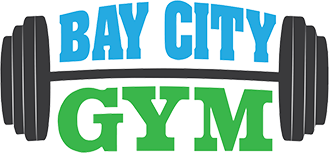Article by – Chrissy Newall – Owner, Coach and Group Fitness Instructor
When it comes to getting the most from your training, protein is your best friend. It is the nutrient that repairs and builds muscle, helps with recovery, and keeps you fuller for longer, making it just as important for fat loss as it is for muscle gain.
But it is not just about how much protein you eat, when and how you have it can make a big difference to your results.
Why Protein Matters for Exercise
Muscle Repair and Growth: Every time you train, especially with weights, you create small tears in your muscles. Protein provides the building blocks (amino acids) to repair and strengthen them.
Better Recovery: Protein reduces muscle soreness and speeds up recovery between workouts.
Supports Fat Loss: High-protein diets keep you fuller for longer, helping to manage cravings and improve body composition.
Blood Sugar Balance: Protein slows the release of sugar into the bloodstream, reducing spikes and crashes in energy. This is especially important for women in menopause, when hormonal changes can make blood sugar regulation more difficult, often leading to cravings, weight gain, or energy dips.
Pre-Workout: Fuel Your Session
Having protein before you train ensures your muscles are primed and ready. Pair it with some carbs for energy.
Easy pre-workout options:
- A protein smoothie with fruit
- Greek yoghurt with berries
- A slice of wholegrain toast with eggs
Post-Workout: Maximise Recovery
The window after training is when your body is primed to absorb nutrients. Aim to have protein within 30 to 60 minutes of finishing your session to kickstart recovery and muscle growth.
Easy post-workout options:
- A protein shake with a banana
- Chicken or tofu wrap with salad
- Cottage cheese with pineapple
- Tuna on wholegrain crackers
How Much Do You Need?
A good rule of thumb is:
- 20 to 30g of protein per meal (roughly a palm-sized serving of meat, fish, tofu, or a scoop of protein powder).
- Spread it across the day rather than loading it all at dinner.
Practical Tips for Getting Enough Protein
- Prep ahead: Cook extra chicken, mince, or lentils for quick meals.
- Snack smart: Swap chips or biscuits for high-protein snacks like boiled eggs, edamame, or beef jerky.
- Upgrade meals: Add beans, lentils, or quinoa to salads; sprinkle seeds or nuts onto yoghurt.
- Protein on the go: Keep a protein bar or shake handy for busy days.
The Takeaway
Protein is key to getting results from your training — whether your goal is to tone up, build strength, lose fat, or support hormonal health. Focus on including it at every meal, and pay attention to your pre- and post-workout timing to maximise results.
Pro Tip: Not sure if you are getting enough? Have a chat with one of our trainers next time you are in — we can help you with practical tips that suit your goals and lifestyle.


